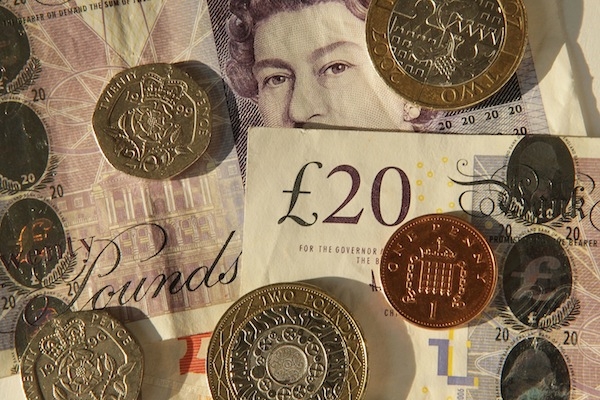You don’t have to be an economist to know that if you spend more than you earn, you’re in trouble. As Micawber famously said in David Copperfield: ‘Annual income twenty pounds, annual expenditure nineteen pounds nineteen shillings and six pence, result happiness. Annual income twenty pounds, annual expenditure twenty pounds nought and six, result misery.’
But what Micawber couldn’t account for was the swathe of stuff we would find ourselves paying for to live a modern life in the 21st century. Back in those days, there were five outgoings: food, clothes, heat, light and accommodation.
We have the same today, but added to that there’s the home phone, mobile phone, broadband, laptops, tablets, Apple Pay, iTunes, train fares, cars, childcare, overdraft facilities, credit cards, loans, mortgages that are five times income, student debt repayments, five insurance policies, Pret a Manger, holidays in France, apps, subscriptions, NowTV, Netflix and a bottle of red wine a night to wash it down.
I know what you’re going to say. If you can’t afford it, you shouldn’t have it. There is no question that is true. But what Micawber also didn’t have as he uttered his fail-safe route to financial harmony was the constant barrage of advertising, the consumer society, the buy now, pay later culture of which most of us have happily partaken, but have been heavily influenced into accepting as normal.
In this world of easy payments and small treats everywhere, it’s hard to Micawber our own finances. Outgoings spread like impetigo: you think you’ve contained them, then up pops another one. The rhizomatic encroachment of technology across our every interaction has resulted in more tiny, regular, disaggregated payments which, taken together over a year, add up to a two-week holiday in Tuscany.
What happens in our brains as we make such decisions is something like this: ‘that Birchbox subscription for £12.99 a month sounds good,’ ‘hang on, I can’t really afford it,’ ‘it’s only £12.99, you’d spend that on a takeaway,’ ‘OK, then’. Click. Multiply that two or three times a month and pretty soon you’re spending an extra £600 a year on things that cost £12.99.
Aviva calls this ‘invisible spending’. Professor Darren Duxbury from the Newcastle University Business School and the Behavioural Research in Finance Group says: ‘People do not appreciate how quickly small, disaggregate expenses add up to large amounts of aggregate expenditure.’
The average salary in the UK is £26,500. This generates take-home pay after tax of £21,187.20, or £1,765.60 a month. Then subtract pension payments and any other benefits: let’s say there’s about £1,550 left. Assuming a typical mortgage repayment of £700, that leaves £850 a month to cover all types of insurances, including life, car, home, pet – together maybe around £70 a month or so. TV, mobile, broadband, maybe £50? We’re down to £630.
Imagine you are also paying off a credit card (average for the UK is £8,000) and personal loan debt, at a rate of £150 a month. We’re down to £480 and we haven’t even started budgeting for food or energy bills. Add to this inflation, low wage growth and rising housing costs and it becomes apparent that we are not just running to stand still, we are running ourselves right down into the ground, just by living a normal life.
For most of us, the reality is that there is very little room to squeeze in all the little treats we so unthinkingly reach for every day. The small cost of that coffee, or smoothie, or Birchbox, or app, is not small at all. It’s a trick. Aviva reckons that little invisible spends suck £43,500 out of the average person throughout their lifetime. That’s two years’ average salary; two university educations.
Duxbury believes the solution might be to make such transactions more meaningful socially and psychologically by making the true value of the trade-off visible, so it’s not just £3 in exchange for a coffee but a self-aware act of foregoing future psychological well-being in order to receive a small amount of satisfaction in the next half an hour. Or, say, two weeks’ worth of work, stress and tiredness just to keep up a posh coffee habit.
As more money enters financial services through Mark Carney’s post-Brexit stimulus, the temptation will not be to scrimp on small spends but to live for the moment.
It has become trite to tell people not to spend on little things here and there and to save those small amounts for retirement instead. But to pay spending a little more attention, to think deeply about the value of a transaction made or not made, would earn us all a thumbs up from Micawber – and maybe a little less stress and striving too.
Rebecca O’Connor is the founder of Good With Money and a former financial writer at The Times






Comments